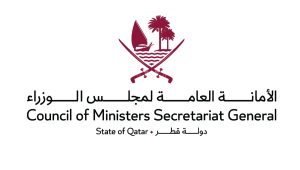A few days ago, a plane carrying Sudanese army commander Abdel Fattah al-Burhan landed secretly at Geneva airport, away from media lenses. The visit, marked by secrecy, brought him together with the US President’s African affairs advisor, Musaad Boulos, without much leaking about the nature of their meeting.
Soon, these mysterious moves reflected inside Sudan, where the army commander issued a series of surprising decisions including retiring several officers known for their affiliation with the Islamic movement, opening the door for wide reactions among anti-war forces and political observers.
Among the most prominent names retired was Major General Nasr al-Din Abdel Fattah, commander of the armored corps, considered one of the most prominent military figures affiliated with the Islamist current, and possibly seen as a potential successor to army commander General Abdel Fattah al-Burhan.
Reactions and positions were divided between those who considered the move an indicator of a political shift driven by external pressures, especially after meetings held in Switzerland, and those who saw it as merely an attempt to reposition and reproduce the crisis in a new guise.
Some voices linked the decisions directly to the negotiation track recently held in Geneva, considering the step a response to international community pressures wanting to see reforms within the military institution as an entry point to stop the war.
On social media, diverse views emerged. Mukhtar Muhammad noted that al-Burhan’s visit to Switzerland began to bear fruit, and that removing some Islamist officers represents the beginning of gradually pulling the rug from under the most hardline elements within the army.
Jadu Jani went in the same direction, seeing the recent changes not just as administrative measures but clear political messages paving the way for an international settlement, saying the US carefully chose this path and requested preparation for it through these decisions.
Meanwhile, Muhammad al-Sisi cautiously questioned whether this is a real change or just a new repositioning.
On the other hand, there were calls to expand the scope of reform and not settle for partial steps. Badir al-Badiri stressed that retirements should have included prominent names in army leadership such as al-Burhan himself and his partners from the Sovereign Council, considering them more deserving of retirement for clinging to their positions for years.
Other voices saw these changes as potentially reviving the spirit of the December revolution. Abu Madar al-Jaali considered the people ready to rekindle the revolution’s spark against the oppressive regime, linking the decisions to a broader demand for radical change beyond the military institution.
Conversely, a wide sector of anti-war forces expressed deep skepticism about al-Burhan’s intentions, considering the move merely an attempt to beautify the army’s image without genuinely addressing the roots of the crisis. Muhammad al-Shayqi saw what happened as a severing of a specific alliance with Islamist extremists but not a strategic shift, pointing to al-Burhan’s continued ties with figures from the same current through other channels.
Azzam Abdullah believed al-Burhan has indeed started removing officers close to Yasser al-Atta and Islamist power centers within the army, but linked the move more to an attempt to fully control army decisions than to a comprehensive peace process.
Osama Jalal was more severe in his criticism, affirming that the army remains under the control of the Islamic movement in quantity and quality, and that any retirement is just replacing one officer with another more loyal. He added that al-Burhan himself came to leadership through Islamic movement arrangements and cannot currently detach from them.
Active social media pages like “Sudan Nation” and “New Sudan” went further, describing the events as a ridiculous play and a desperate attempt to change the “snake’s skin” to mislead and reproduce the regime with new faces.
These pages emphasized that any attempt to beautify al-Burhan’s or the Islamic movement’s image will not deceive the street, and that real reform cannot happen through the current military institution.
Activist Gaddafi Al-Neel summed up this trend saying, “Even if he burns his entire army, we will not believe him; because the truth is one: al-Burhan is just a puppet in the hands of Islamists.”
These reactions showed a clear division among anti-war forces: one team treats the decisions as a positive development, albeit limited, on the path to reform and stopping the war; the other sees them as mere repositioning and a political play aimed at absorbing international pressures and buying time for the Islamists’ return to power.













Recommended for you
Exhibition City Completes About 80% of Preparations for the Damascus International Fair Launch
Talib Al-Rifai Chronicles Kuwaiti Art Heritage in "Doukhi.. Tasaseem Al-Saba"
Unified Admission Applications Start Tuesday with 640 Students to be Accepted in Medicine
Egypt Post: We Have Over 10 Million Customers in Savings Accounts and Offer Daily, Monthly, and Annual Returns
Al-Jaghbeer: The Industrial Sector Leads Economic Growth
His Highness Sheikh Isa bin Salman bin Hamad Al Khalifa Receives the United States Ambassador to the Kingdom of Bahrain